If hard work alone could end poverty, the poorest people in the world would be the richest. Yet millions remain trapped in poverty for generations. Why? In this episode of Newsreel Asia’s explainer series “We the People,” Harshita Rathore examines why poverty cannot be reduced to individual effort or personal choices. Instead, the deeper causes lie in structural inequality, inherited disadvantage, and economic systems that reproduce gaps across generations. We explore key ideas such as path dependency, the Great Gatsby Curve, and the concept of a poverty trap showing how the conditions of birth shape access to education, healthcare, land, and income. The episode also examines how caste, gender, landlessness, weak labour protections, and unequal wealth transfer reinforce long-term inequality. Many of the world’s poorest people are already working long hours. The issue is not effort it is low wages, unstable employment, lack of public services, and policies that fail to protect the vulnerable. Drawing on the ideas of economists like Amartya Sen and Thomas Piketty, this explainer shifts the focus from blaming individuals to questioning institutions and public systems. Watch till the end and tell us, do you think poverty is a personal failure or a structural problem?
On February 15 last year, a deadly stampede took place at the New Delhi Railway Station. It was triggered by a sudden surge of passengers, fueled by delays to three trains, including a special train bound for the Maha Kumbh mela - projected as the world's biggest religious congregation - that was being held in Uttar Pradesh's Prayagraj. One year on, students of Jamia Milia Islamia University revisit the family of Pinki Devi, who was one of the 18 victims who lost their lives in the tragic incident. She left behind her husband and two children who are building their life from scratch. Through her story, we look at the bigger picture: no heads rolled by Railways yet, and nothing changed at NDLS even now. Her family claims that the cash compensation given immediately after the stampede to victims' families was to force the kins into silence. On January 7, 2026, during a hearing on a Public Interest Litigation filed by an organisation that argued the stampede exposed “gross mismanagement and administrative failure,” the Delhi High Court strongly criticised Indian Railways for not filing its response on the fatal 2025 New Delhi Railway Station stampede—even after one year.
On 12 February 2026, the country will vote in its first national parliamentary election since the July 2024 student protests, which began over government job quotas and quickly escalated into a nationwide movement demanding political change. The unrest ultimately led to the ouster of Prime Minister Sheikh Hasina after 15 years in power and the formation of an interim government under Nobel laureate Muhammad Yunus. This election is being closely watched not just within Bangladesh, but across South Asia and beyond. While it will determine the country’s future governance and political direction, it is also deeply controversial. The Awami League, the former ruling party, has been barred from contesting, raising serious questions about democratic legitimacy, representation, and fairness. As voters head to the polls, they are navigating a complex mix of hope and fear—hope for meaningful political change, and fear of instability, violence, and the safety of minorities during the election process. In this interview, we speak to award-winning journalist Zia Chowdhury, a staff correspondent at The Business Standard, who has been reporting on Bangladesh’s politics, human rights, law enforcement, crime, and diplomacy for over a decade.
Governments often point to rising GDP, higher per capita income, and global rankings to claim that the economy is doing well. But do these numbers actually reflect how ordinary people live? If GDP grows by five percent, does life really improve by five percent for everyone? In this episode of We the People, we look beyond headline statistics to understand what economic “growth” truly means for people on the ground. Using simple examples—from wages and employment to gig work, nutrition, and cost of living—this video explains why commonly used economic yardsticks can be misleading. Growth can happen without fairness. Employment can rise without dignity. Incomes can increase while purchasing power falls. Drawing on ideas by economist Amartya Sen, we explore why development must be measured by people’s real freedoms, security, and ability to live with dignity. Because progress that cannot be felt, shared, or sustained is not progress at all.
In this episode of We the People, Surabhi Singh breaks down a powerful but often misunderstood idea: rights are recognised, not granted. Using everyday examples and insights from political philosophy and constitutional law, this video explains why freedoms like speech, conscience, equality, and dignity don’t come from the state — they belong to us simply because we are human. From John Locke’s theory of natural rights to modern constitutions, the UN’s Universal Declaration of Human Rights, and thinkers like Ronald Dworkin, we explore: Why governments don’t “create” rights What it means for a constitution to recognise rights Why majority opinion cannot override individual dignity How this idea separates citizens from subjects And why protecting rights requires courts, institutions, and public resistance Understanding where rights come from changes how we see power, justice, and democracy itself.
Surabhi Singh explains why the dignity of labour is not just a moral idea, but an economic necessity. From caste and class hierarchies in India to global examples like Germany’s vocational education system, this video explores how respect, fair wages, and legal protection shape productivity, skill-building, and economic growth. Drawing on ideas from thinkers like Émile Durkheim, George Akerlof, Gary Becker, and Dr B. R. Ambedkar, this explainer shows how undervaluing manual and skilled labour weakens economies—and why no society can truly grow while looking down on the people who keep it running. In this video, we discuss: What dignity of labour really means How social hierarchies affect work and wages Why disrespect leads to poor productivity The link between dignity, skill, and economic growth What India can learn from global labour systems
In democracies, we expect rights to disappear loudly — through bans, crackdowns, or open repression. But in reality, freedom is often taken away quietly, through laws, procedures, and paperwork.
In this video, we explain how governments limit rights legally, without changing the Constitution or declaring dictatorship. From vague laws and emergency powers to selective enforcement and bureaucratic control, this is how freedom slowly erodes while everything still looks “normal.”
We explore:
How free speech, protest, and personal liberty are restricted using legal language
Why governments rely on terms like national security, public order, and morality
Carl Schmitt’s idea of the “state of exception” and why temporary powers become permanent
Hannah Arendt’s warning about bureaucratic control and legal normalisation
Real-world examples like UAPA and Section 163 of the Bharatiya Nagarik Suraksha Sanhita (BNSS), 2023
How selective enforcement turns the law into a weapon against dissent
When we think of development or vikas, we often picture highways, airports, metros, and tall buildings. But do these visible symbols really tell us how well a country is doing? In this explainer, Newsreel Asia looks beyond concrete and steel to ask a deeper question: does development only mean infrastructure, or does it also mean freedom, trust, and dignity? Drawing on ideas from thinkers like Amartya Sen, Robert Putnam, and Douglass North, this video explores why real progress is about expanding people’s choices and improving the quality of public life. True development is reflected in everyday behaviour — civic sense, ethical conduct, trust in institutions, and a willingness to do the right thing even when no one is watching. From how societies handle crises like COVID-19 to how citizens treat shared spaces, this episode explains why values and social norms matter as much as economic growth. So as India builds new roads and cities, the bigger question remains: are we also building a stronger collective conscience?
Political engagement is not the same as political loyalty. Yet in today’s hyper-polarised world, many of us confuse supporting democracy with supporting a political party. In this episode of Newsreel Asia’s Explainer Series, Harshita Rathore breaks down what political engagement really means—and why being politically aware does not require blind loyalty to any party or ideology. Have political disagreements cost you friendships? Do debates with family turn into heated arguments? Do politics feel exhausting, emotional, and deeply personal? This video explains: What political engagement actually means Why party loyalty weakens democracy How polarisation affects citizens and public debate The difference between being a political supporter and an active citizen How informed, critical participation strengthens democratic systems Using insights from political theory, democracy studies, and everyday examples, we explore how citizens can stay engaged without becoming partisan, and why questioning power—no matter who is in office—is essential for a healthy democracy. This explainer is for anyone trying to understand Indian politics, democracy, civic responsibility, and citizen participation beyond social media arguments and TV debates.
Why does bad governance continue even when problems are clearly visible all around us? In this episode, Newsreel Asia producer Surabhi Singh breaks down how distraction politics allows those in power to escape accountability. From unemployment, healthcare failures, and broken public services to culture wars, identity politics, and manufactured controversies, this video explains how attention is deliberately shifted away from real governance issues.
Corruption is often imagined as bribes, cash-filled envelopes, or stolen public funds. But today, scholars, legal experts, and real-world events are forcing us to rethink this definition. Corruption is no longer just about money — it also includes deliberate inaction, selective enforcement, and the betrayal of public duty. In this explainer, we unpack how a new idea has quietly entered the meaning of corruption and why it matters for every citizen.
This video is a powerful summary of Stories of Resilience — featuring an acid attack survivor, a cancer fighter, a bipolar disorder survivor, a single father, a trans woman reclaiming dignity, a domestic abuse survivor, a woman freed from bonded labour, a mother who rebuilt life after loss, a widow raising her child alone, and Bengaluru’s first woman BMTC driver.
Ten lives. Ten journeys.
One message: resilience.
Watch to get inspired and find strength against all odds.
India’s new Digital Personal Data Protection Act, 2023 (DPDP 2023), is reshaping the landscape of transparency and accountability—especially when it comes to the Right to Information (RTI). While the law promises stronger privacy protections, it also gives government offices sweeping power to reject RTI requests by simply categorising information as “personal data.” This shift could make it even harder for activists and journalists to expose corruption, investigate misuse of public funds, or track the implementation of welfare schemes.
In this episode, Gunjan Handa speaks with RTI activist Amrita Johri to unpack what the DPDP Act truly means for citizens, democracy, and the future of transparency in India. Together, they explore how privacy—meant to empower citizens—could instead become a tool for government secrecy, and why this raises serious concerns about holding those in power accountable.
Watch to understand the risks, loopholes, and realities of India’s first full-fledged data protection law—and what it could cost our democracy.
What are elections really for? Every election season turns into a spectacle — banners, slogans, TV debates, strategy talk, poll math. But beneath all the noise, we often forget the core purpose of voting in a democracy. This film takes you beyond the drama and deep into the true meaning of elections. It asks a simple but powerful question: Are we choosing performers… or public servants?
Bhutan hosts the first-ever Global Peace Prayer Festival 2025 in Thimphu, held in continuation of the celebrations marking the 70th birth anniversary of His Majesty the Fourth King, Jigme Singye Wangchuck — the visionary behind Gross National Happiness. The two-week festival brings together spiritual leaders, monks, and practitioners from around the world to offer prayers for peace, compassion, and global harmony. The event features powerful rituals such as the Jabzhi Dhoechog, Bazaguru mantra recitation, and the Kalachakra Empowerment led by His Holiness the Je Khenpo. It also marks historic milestones, including the ordination of over 250 Buddhist nuns, symbolizing inclusivity and empowerment. Buddhism, founded by Siddhartha Gautama—the Buddha—is a spiritual tradition centered on compassion, mindfulness, and the path to liberation from suffering. Over time, it evolved into three major sects. Theravada, practiced mainly in Sri Lanka and Southeast Asia, preserves the earliest teachings and emphasizes individual enlightenment through meditation and discipline. Mahayana, widespread in East Asia, focuses on the Bodhisattva ideal—seeking enlightenment not just for oneself but for all beings. Vajrayana, prominent in the Himalayas including Bhutan and Tibet, uses advanced rituals, mantras, and tantric practices to accelerate spiritual transformation. Together, these traditions reflect Buddhism’s rich diversity while sharing the same core message: awakening through wisdom and compassion.All three major Buddhist traditions — Theravada, Mahayana, and Vajrayana — are coming together to participate in this peace prayer programme. Their unified presence makes the festival truly historic, as it brings diverse Buddhist lineages under one roof to offer collective prayers for harmony, compassion, and global peace. With Prime Minister Narendra Modi joining the celebrations, the festival stands as a profound expression of Bhutan’s spiritual heritage, unity, and its enduring message of peace to the world.
Transgender people in India have long faced exclusion and stigma. From concealing their identities to being judged and discriminated against, their lives continue to be marked by struggle. According to the 2011 Census, India recorded over 4.8 lakh transgender individuals, though activists say the actual number is much higher due to widespread underreporting and social invisibility. Even today, despite the 2014 Supreme Court judgment recognizing trans people as the “third gender” and the Transgender Persons (Protection of Rights) Act, 2019, many continue to face barriers in education, employment, housing, and healthcare. Yet, Nayana’s journey stands out as a story of resilience and hope. Born as a boy, she transitioned to become a trans woman—overcoming immense hardship to transform her life. Once forced into sex work for survival, today she works as a marketing associate at an IT company in Bengaluru, proving that determination can rewrite one’s destiny. Born in Udupi to a modest family, Nayana always knew she was a woman at heart. But growing up, she faced relentless bullying and was branded with hurtful slurs reserved for the “third gender.” She moved to Pune and joined a transgender community, surviving for years through begging and sex work — a reality for nearly half of India’s transgender population, as per a 2018 National Human Rights Commission study, which found that 96% of trans people are denied jobs and 60% are forced into sex work or begging. Eventually, Nayana resolved to rebuild her life. Returning to Bengaluru, she took computer and multimedia courses, connected with NGOs, and began administrative work supporting sexual minorities. Her journey from exclusion to empowerment mirrors the broader struggle of India’s transgender community - a fight not just for acceptance, but for dignity, opportunity, and equality.
Online technology, despite its many advantages and advancements, now faces a formidable challenge. How do we safeguard our emotional and psychological wellbeing? This is the third in a series of stories and interviews by Newsreel Asia journalist Surabhi Singh, looking into how social media platforms and messaging apps have increasingly become hubs for the circulation of harmful and illegal sexual content. Now, joining these digital spaces are AI platforms, adding a new and deeply complex layer of concern.
What’s really happening to young minds on the internet?
In this powerful conversation, Newsreel Asia’s journalist Surabhi Singh speaks with Nirali Bhatia, a leading cyberpsychologist and counselling expert, about the dark side of India’s online world — where young boys are getting exposed to extreme sexual content, misogyny, and even fantasies involving their own mothers and sisters.
Will the centuries-old tradition of the Kumari — Nepal’s living goddess — ever reform with time?
Harshita Rathore explores the deeply rooted practice of Kumari Pratha, where a prepubescent girl from the Newar community is worshipped as the living embodiment of Goddess Taleju. Chosen for her purity and perfection, the Kumari is revered as divine until she begins to menstruate — a moment that abruptly ends her sacred status.
Through history, the practice has stood as a symbol of faith and culture, yet it also raises pressing questions about gender, childhood, and the right to live with dignity. The Nepal Supreme Court’s 2008 ruling brought some reforms — including access to education and healthcare — but is that enough?
To understand the path forward, Harshita speaks with activist Radha Paudel, who has been advocating for dignified menstruation and gender equality in Nepal. Paudel argues that while traditions must be respected, they should also adapt to protect the rights of girls and women. She suggested some reforms to the practice. But will faith allow tradition to evolve?
To find out whether the floods that Assam faces every year are natural or man-made, Newsreel Asia producer Tej Bahadur Singh travels to Lakhimpur district, one of the worst-hit by floods. He meets a 47-year-old Toramai Pawe, an ASHA worker and daily wage laborer, in Assam’s Pahumara Ahom village, who has lived for decades, raising her children in a modest home built through years of toil. In May 2025, a sudden flood, triggered by water released without warning from the Ranganadi Dam, swept through her village. Her husband, Biren, drowned just steps from their home, leaving Toramai in grief and despair. Their crops, belongings, and vital documents were washed away, joining the losses of countless others in their community. Across Assam, floods this year have affected 6.3 lakh people in 22 districts, claiming 26 lives and damaging 12,610 hectares of cropland.
To find out whether the floods that Assam faces every year are natural or man-made, Newsreel Asia producer Tej Bahadur Singh travels to Lakhimpur district, one of the worst-hit by floods. He meets a 47-year-old Toramai Pawe, an ASHA worker and daily wage laborer, in Assam’s Pahumara Ahom village, who has lived for decades, raising her children in a modest home built through years of toil. In May 2025, a sudden flood, triggered by water released without warning from the Ranganadi Dam, swept through her village. Her husband, Biren, drowned just steps from their home, leaving Toramai in grief and despair. Their crops, belongings, and vital documents were washed away, joining the losses of countless others in their community. Across Assam, floods this year have affected 6.3 lakh people in 22 districts, claiming 26 lives and damaging 12,610 hectares of cropland. For decades, Assam’s floodplains have been both a source of life and loss, with an average of 2.6 million people impacted annually. Districts like Lakhimpur and Dhemaji, downstream of the Ranganadi Dam, face devastating flash floods caused by sudden water releases from NEEPCO’s hydroelectric projects. These man-made disasters, compounded by a lack of early warnings and inadequate research, have turned fertile lands into zones of destruction. Families like Toramai’s lose not only their homes and livelihoods but also their sense of security. As infrastructure controls rivers without regard for communities, the floods in Assam reveal a deeper crisis—one where nature’s cycles are worsened by human hands, leaving millions to rebuild from nothing.
Nepal has been making global headlines after a mass youth uprising forced Prime Minister K.P. Sharma Oli to resign, paving the way for an interim government led by former Chief Justice Sushila Karki. Triggered by a controversial social media ban, the protests quickly grew into a movement against corruption, nepotism and authoritarianism. Nineteen Gen Z protesters were killed in police firing on September 8, sparking nationwide grief and anger, but also a surge of hope for change. For the first time, Nepal has appointed a woman as interim prime minister, and a cabinet of non-partisan professionals is attempting to steer the country toward elections in March 2026.
Political thinkers, activist and youth groups like Hami Nepal are now shaping the idea of a “new” Nepal through citizen assemblies, proposals for decentralised governance and calls for institutional reform. Newsreel Asia’s Harshita Rathore spoke with Prashant Singh, a social activist from Nagarik Pratham, to understand what this moment means for Nepal’s political evolution, the grassroots nature of the movement, and the new political imagination young Nepalis are bringing to the table.
Suleman Ali lived his entire life in Hasila Beel, a village in Assam’s Goalpara district. He built his home brick by brick over years of labor, married off his daughters there, and believed his documents proved he belonged. But one morning in June 2025, bulldozers reduced it all to rubble.
Was Nepal’s PM K.P. Oli scared of Gen Z and the emerging young political leaders? In the guise of “regulating” apps, was his real aim to tighten control over the content being posted against him and his government?
When his administration banned 26 social media platforms overnight, it triggered one of the biggest youth uprisings Nepal has ever seen. What began as anger over losing WhatsApp, Instagram, and even LinkedIn quickly turned into a fight against corruption, unemployment, and years of failed governance. This wasn’t just a protest — it was a generational roar demanding change.
Sikkim, despite being rich in rivers, is facing a severe water crisis. In South Sikkim, where rainfall has dropped sharply, villagers like Durga have stepped in to fill the gaps left by failing systems. Once a farmer, he now works as an unpaid “barefoot engineer,” keeping water flowing when infrastructure cannot. This is the untold story of survival in the hills.
Despite Warnings by environment experts, development projects like dams are turning out to be deadly. Destroying mountains, flooded rivers, The flash floods, cloudburst are not just natural, they are man made disasters. Newsreel Asia’s producer Surabhi Singh travelled to Northeastern state of Sikkim to explore how a dam aggravated the flash floods of October 2023.
How two Muslim minority women sisters faced unfair treatment by Karnataka Police. Behind Bengaluru's giant tech offices lies a darker truth of the crimes against minorities of the state. The two Muslim women, both single mothers, now fight for survival every day. What began as a dispute with their landlady turned into a cascade of abuse, threats, and systemic neglect. Their journey — from reporting chemical attacks and violent assaults to being ignored by the very institutions sworn to protect them — reveals not just personal trauma, but a persistent crisis: the failure of India’s democracy to safeguard its minorities.
Their case is not an exception but a pattern. Karnataka’s conviction rate under the IPC in 2022 stood at 23.9%, well below the national average. Between 2020 and 2023, the state dropped 385 criminal prosecutions, including 182 tied to hate speech, cow vigilantism, and communal violence.
Their story asks a difficult question: in a democracy that promises equal justice, why are minorities still forced to beg for protection?
In today’s world, making sense of the news can feel overwhelming. Between TV debates, viral headlines, and endless social media feeds, it’s hard to know what’s real, what matters, and what’s just noise. This video is a practical guide to engaging with the news more wisely—without falling into the traps of propaganda, misinformation, or outrage cycles. Here’s what we cover:
Why news often triggers emotions before thoughts
How to spot when you’re being manipulated
The difference between balance and distortion
Why algorithms keep you inside bubbles
Simple steps to cut through the noise
Narsisus was addicted for 27 years and survived multiple suicide attempts. Today, he runs a modest community rehab centre. With no frills, only a few beds, basic meals and peer support, it offers a fragile but vital lifeline for those who walk through its doors. His journey, from the darkest moments to helping others avoid the same brink, unfolds in a state battling one of India’s deadliest mental health crises: Sikkim.
To investigate if your 9-5 corporate job has labour laws for your safety and well-being, Newsreel Asia producer Jyoti Jangra travels to India’s Silicon Valley—Bengaluru—to find out a quiet crisis unfolding inside corporate cubicles: the crumbling mental health and legal protections of India’s white-collar workforce.

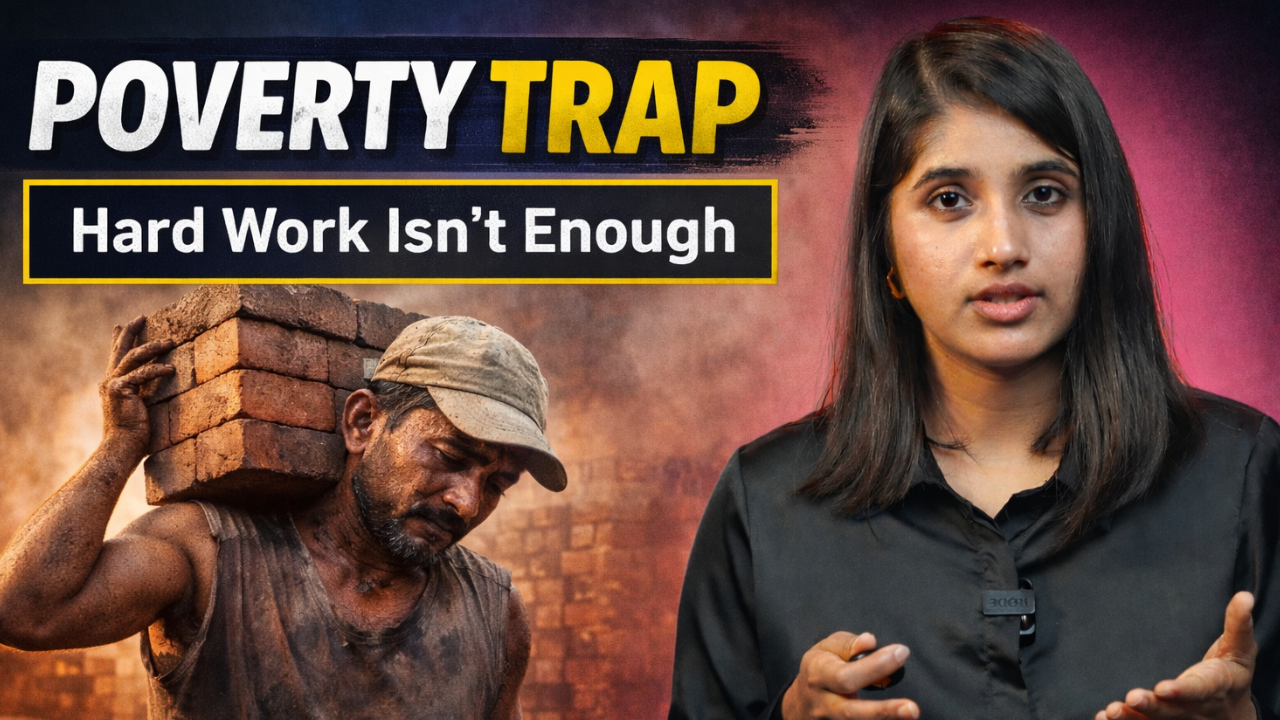
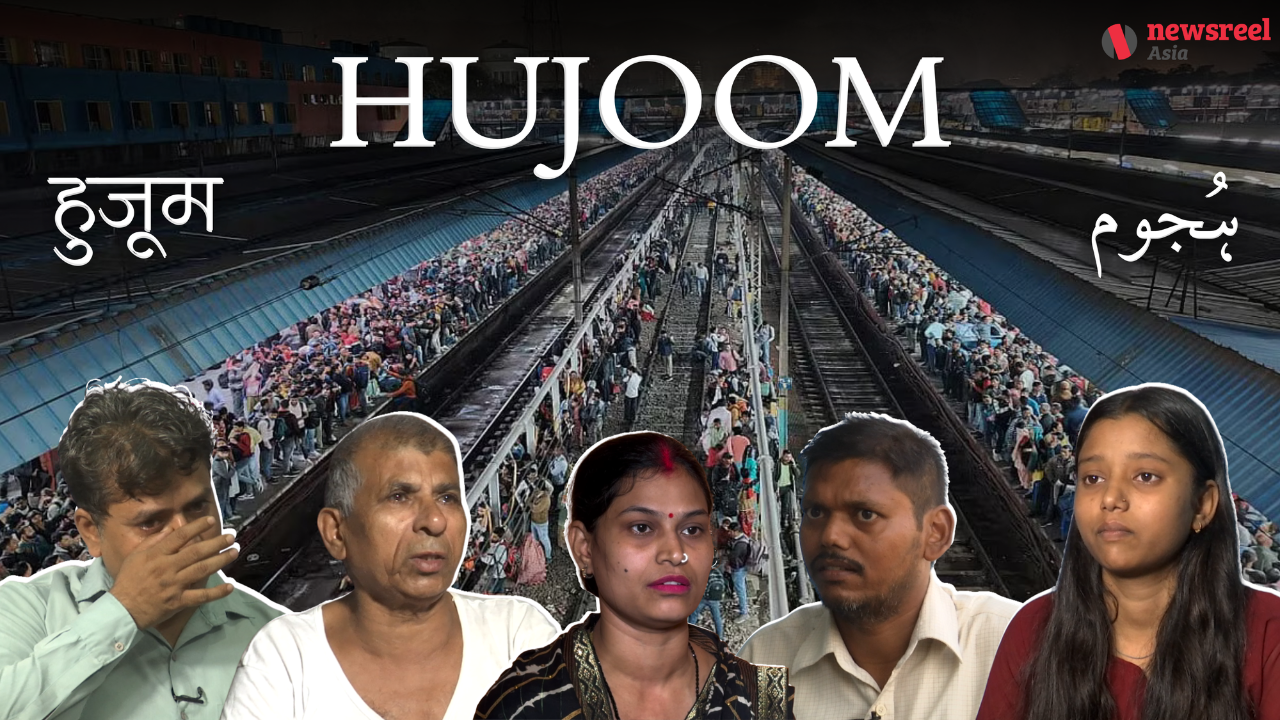

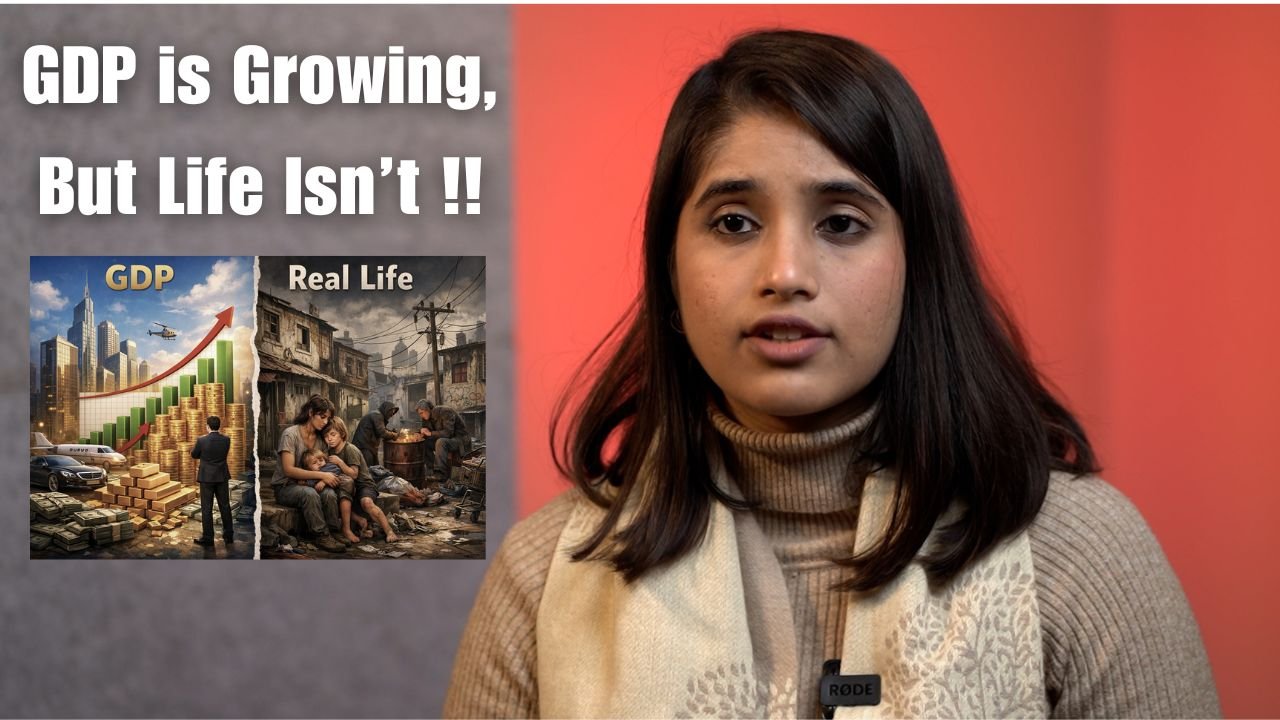
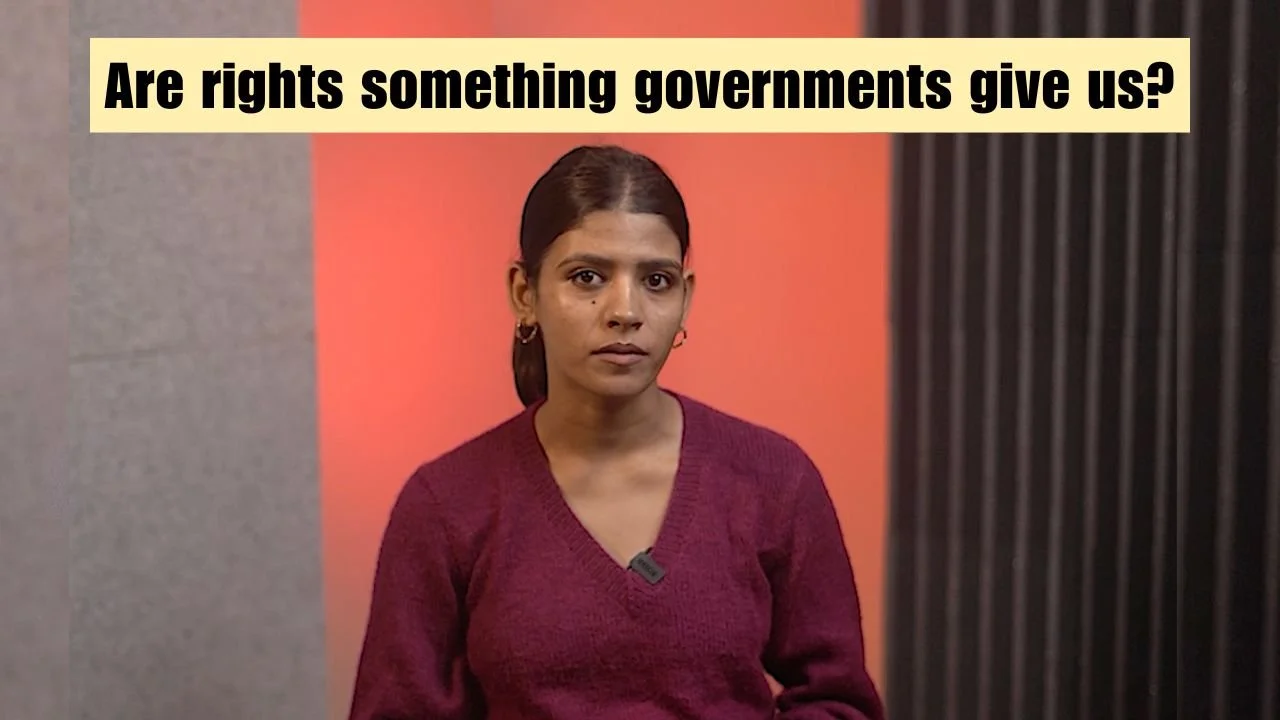
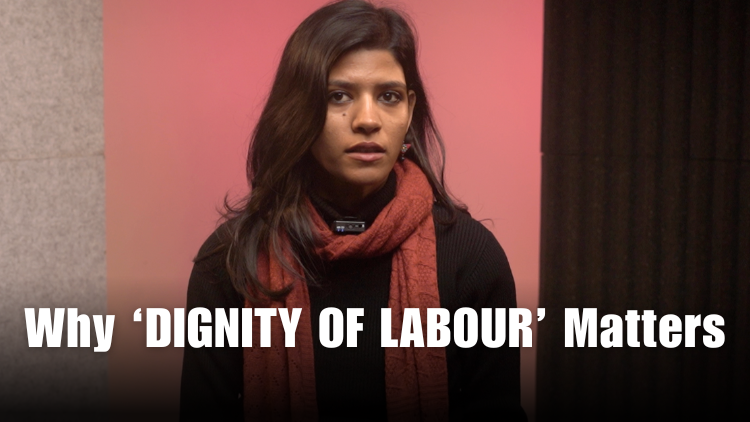
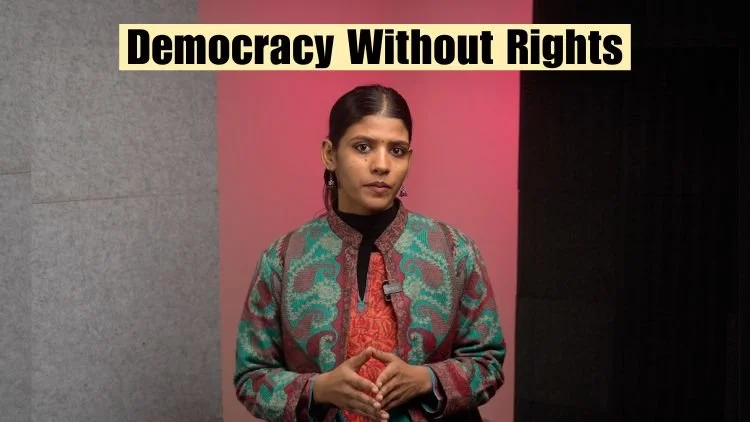
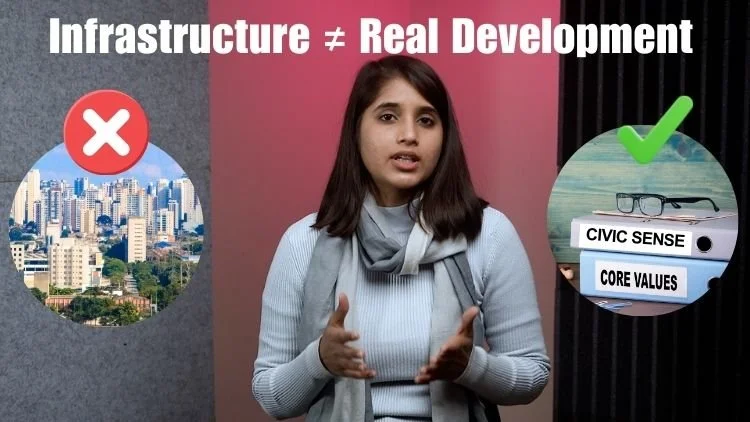



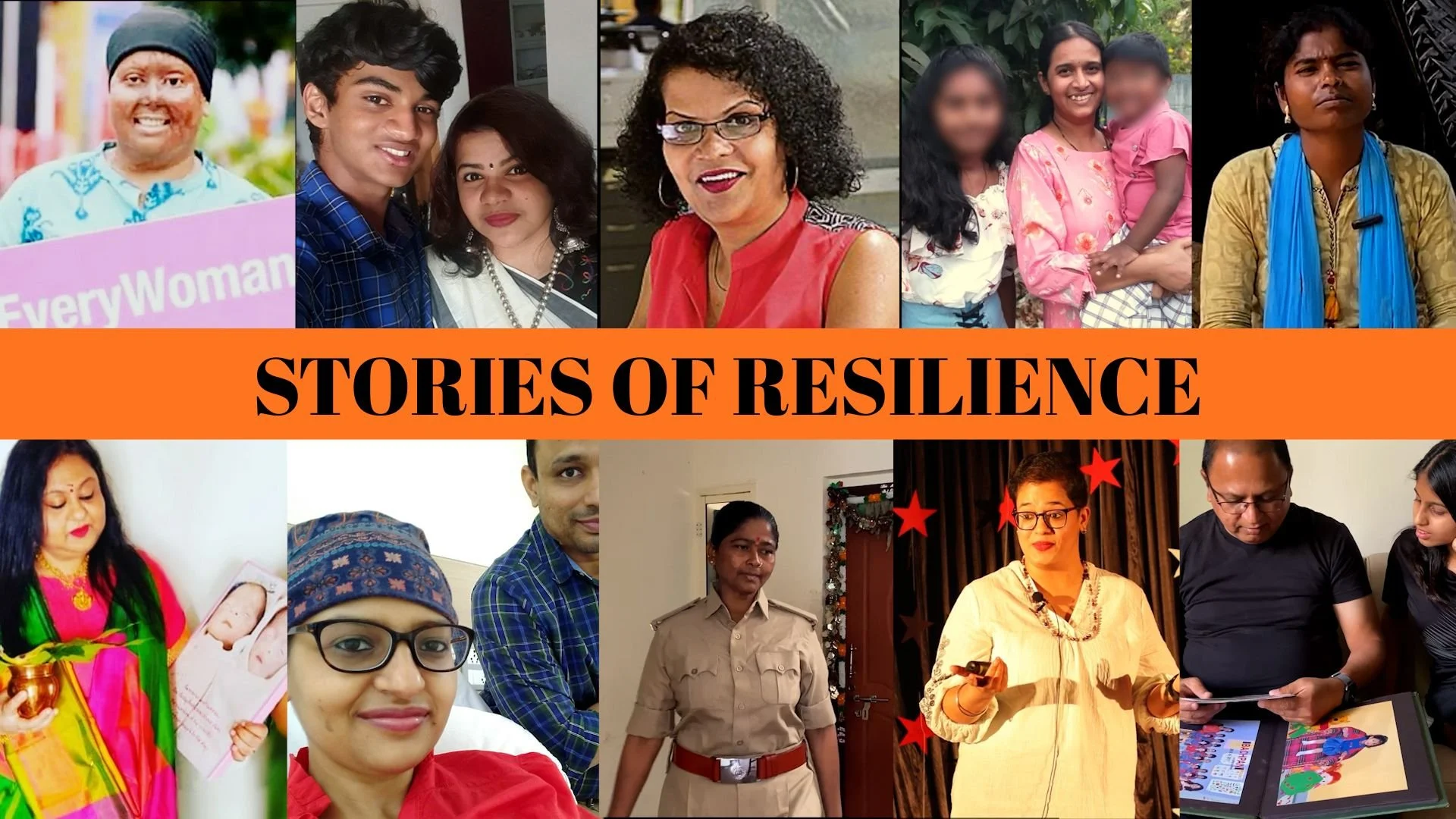



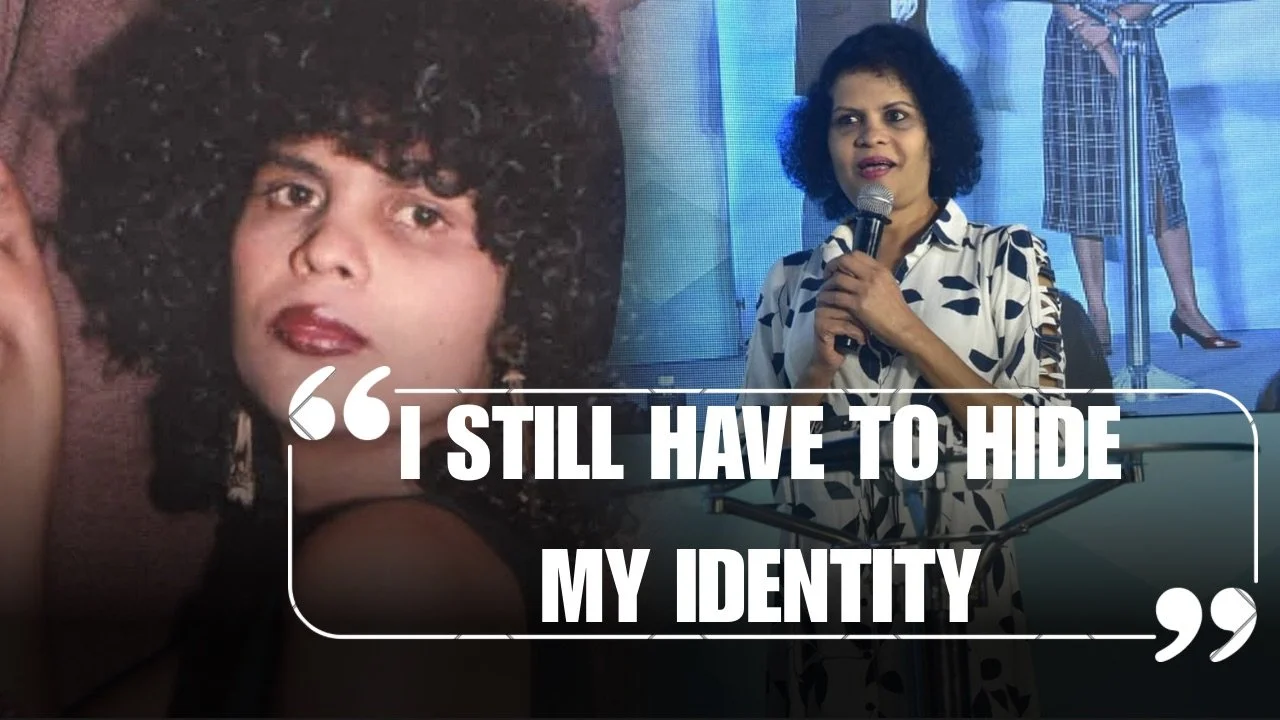
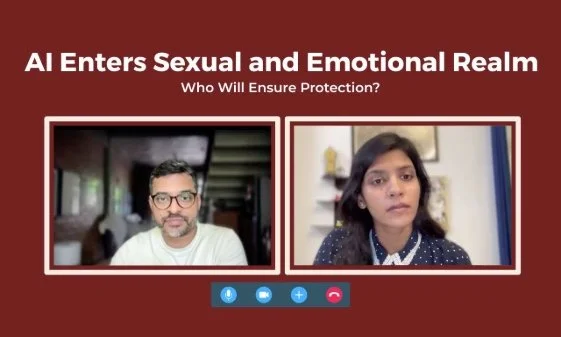
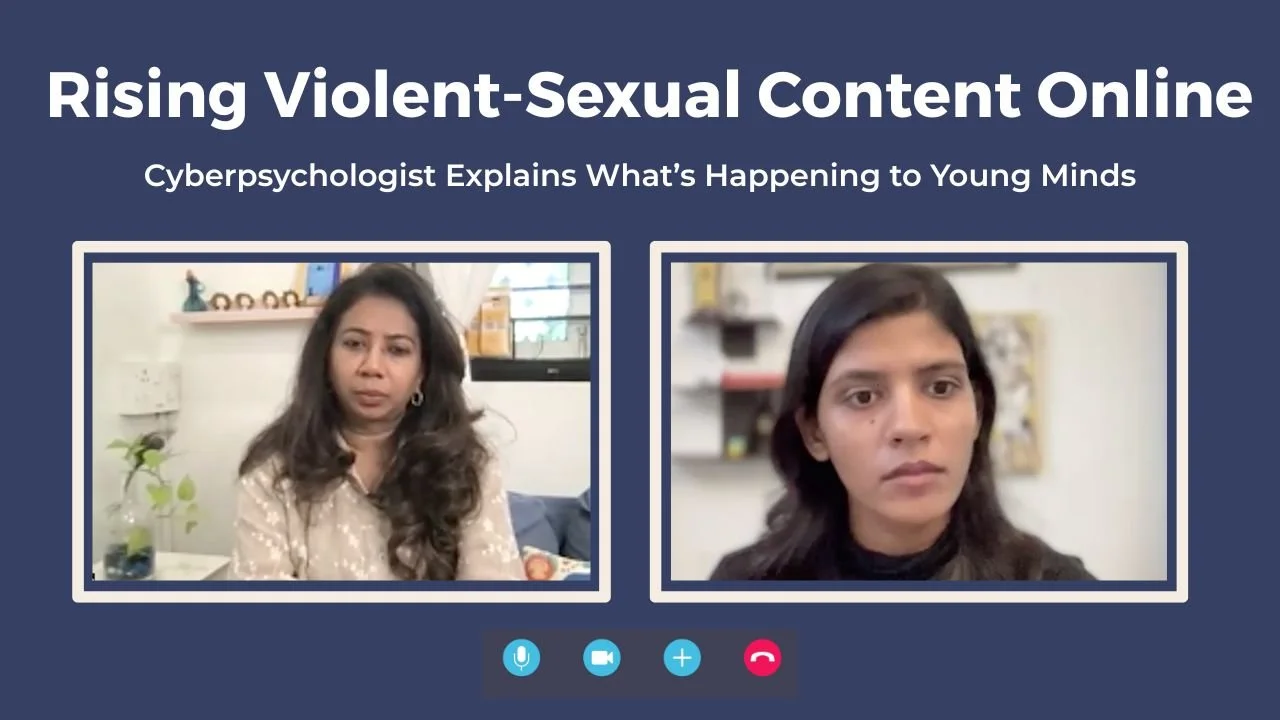


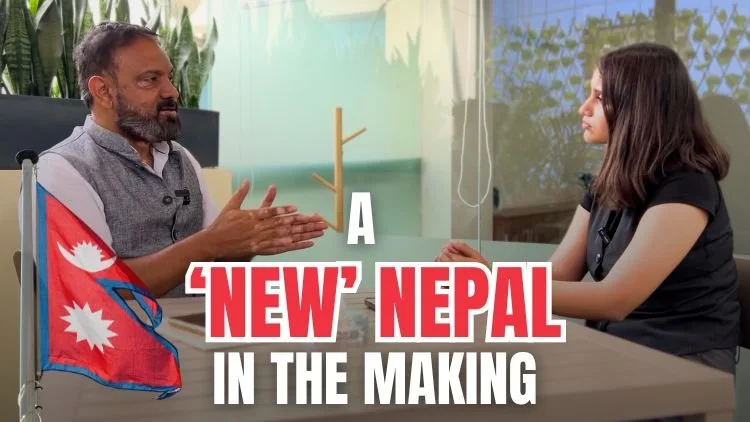


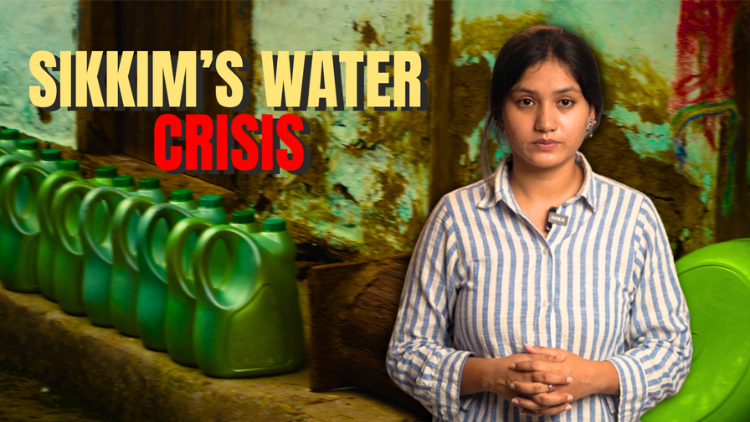





In a democracy, power is meant to belong to citizens. Elected leaders and public officials hold authority only as a trust — to serve the public and remain accountable to it. But over time, that relationship can begin to feel reversed.
In this episode of We the People, Surabhi Singh examines how a system built on representation can gradually start to feel like control. Drawing on the ideas of John Locke, Jean-Jacques Rousseau, James Madison, Max Weber, Hannah Arendt and Michel Foucault, this explainer looks at how democratic decline often unfolds quietly — through distance, bureaucracy, silence and everyday normalization of authority.
When citizens withdraw from public life, when questioning power feels risky, and when elections are treated as the only moment of participation, public institutions can begin to serve those who hold office rather than those who created them.
This episode explores:
• How accountability weakens in everyday governance
• Why bureaucracy can create psychological distance
• How patronage replaces equal citizenship
• The role of social hierarchy in shaping institutional response
• Why democracy depends on continuous public presence — not just voting
Democracy does not disappear in one dramatic moment. It changes slowly. And often, it changes when citizens stop remembering that power begins with them.